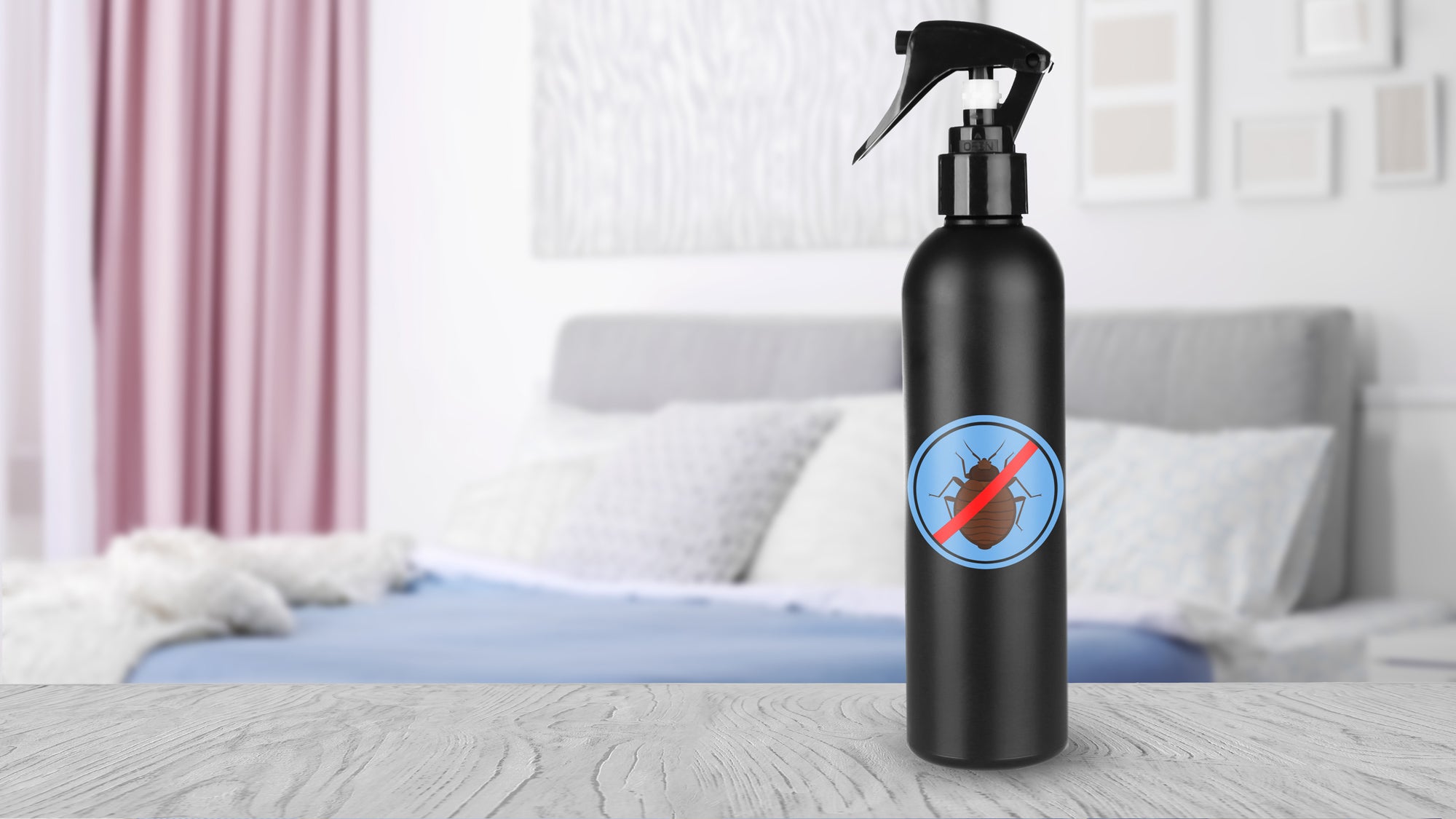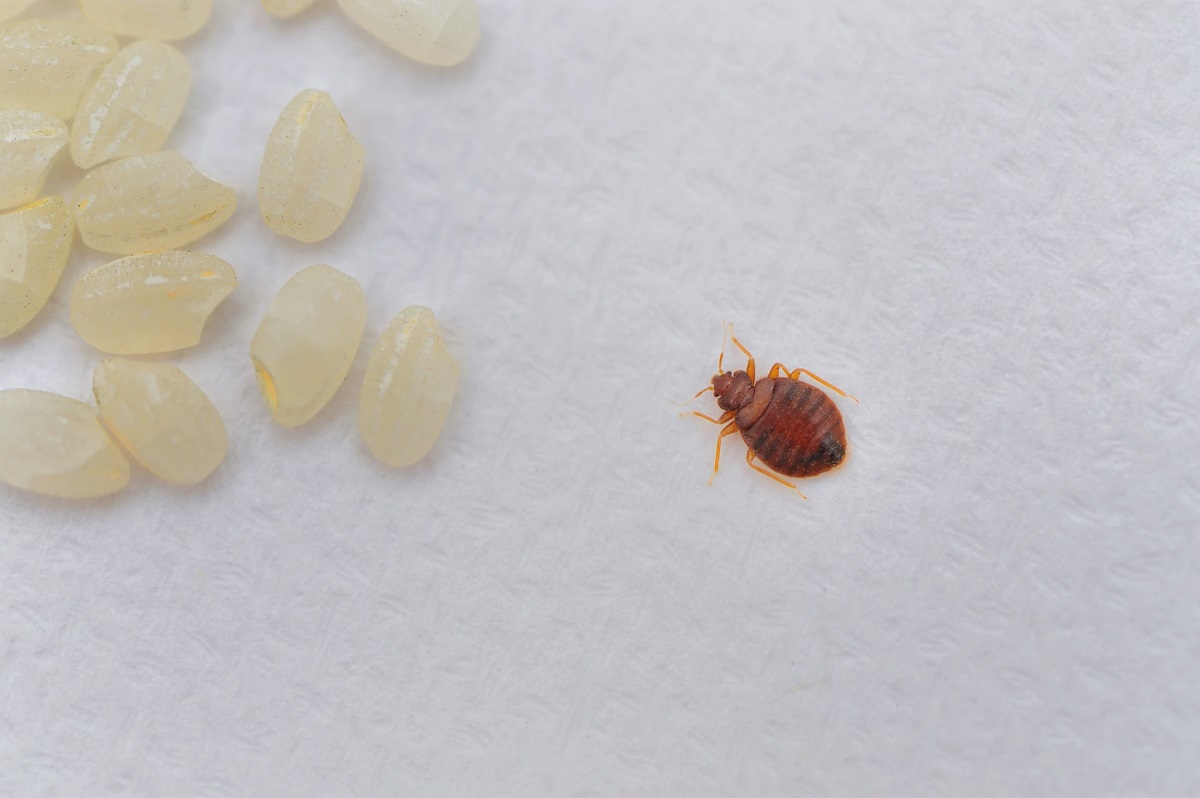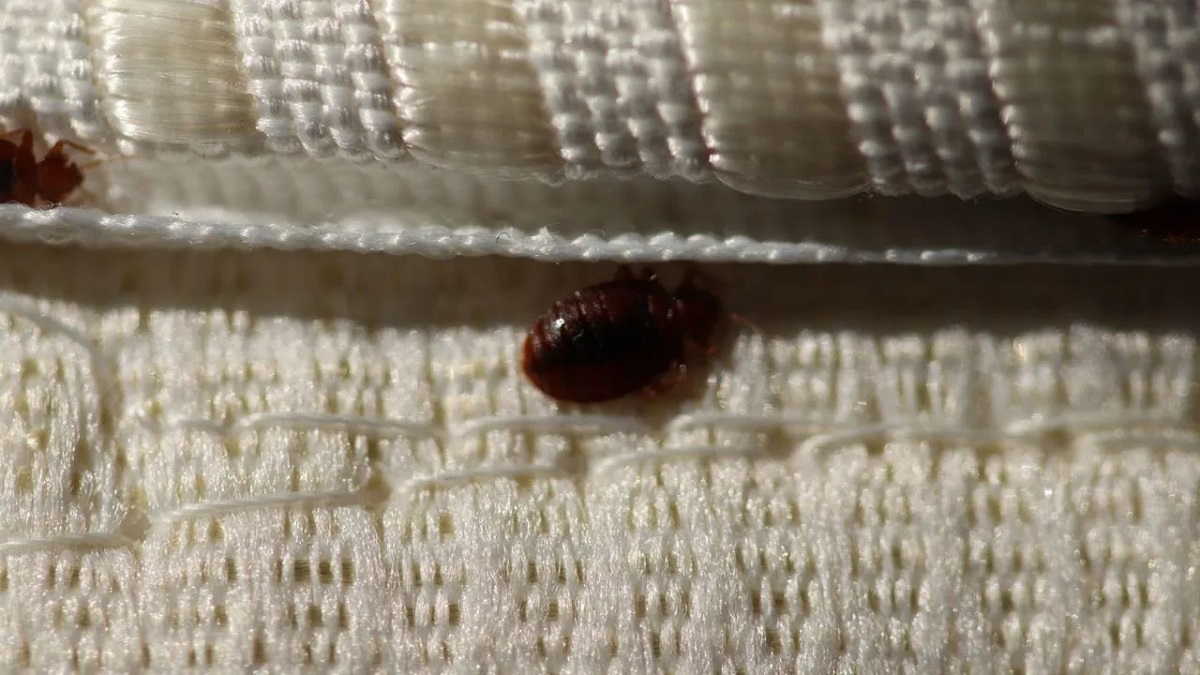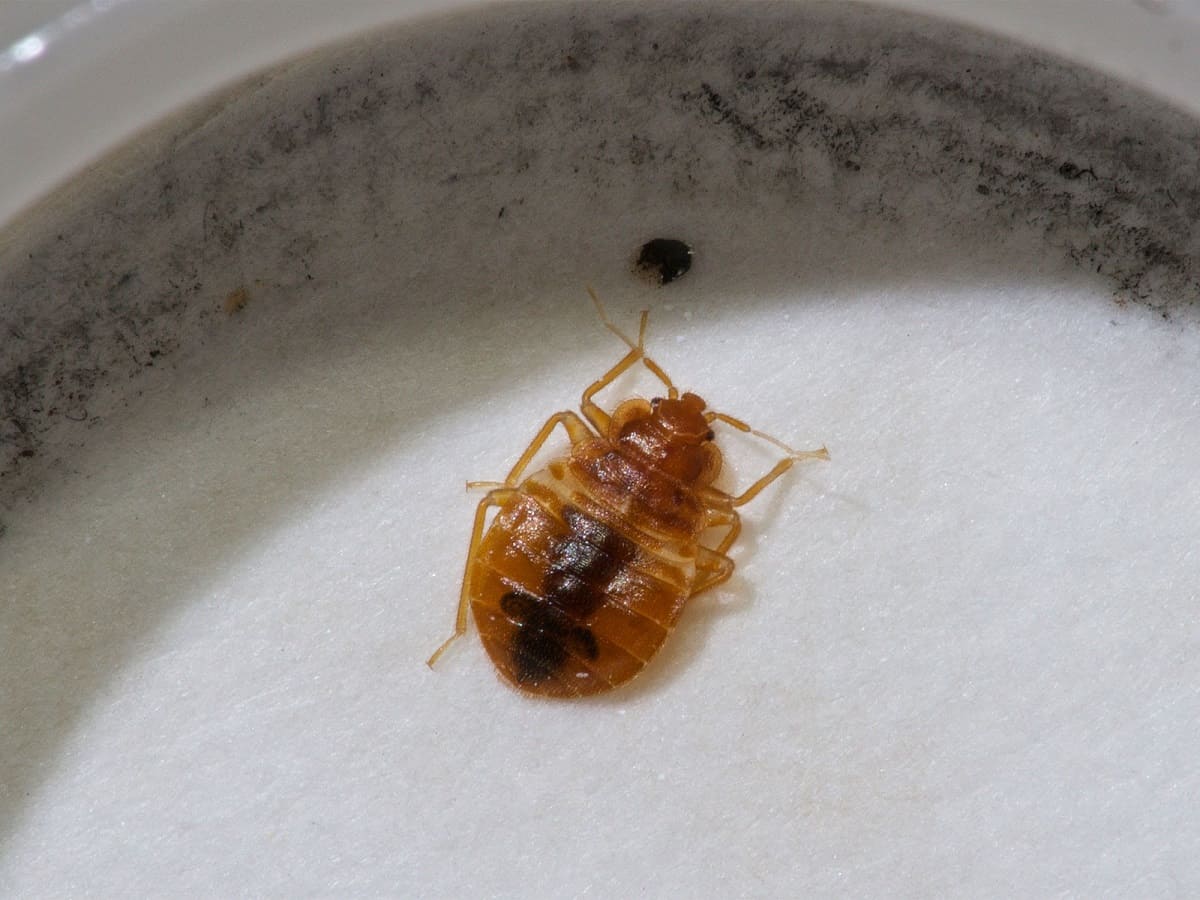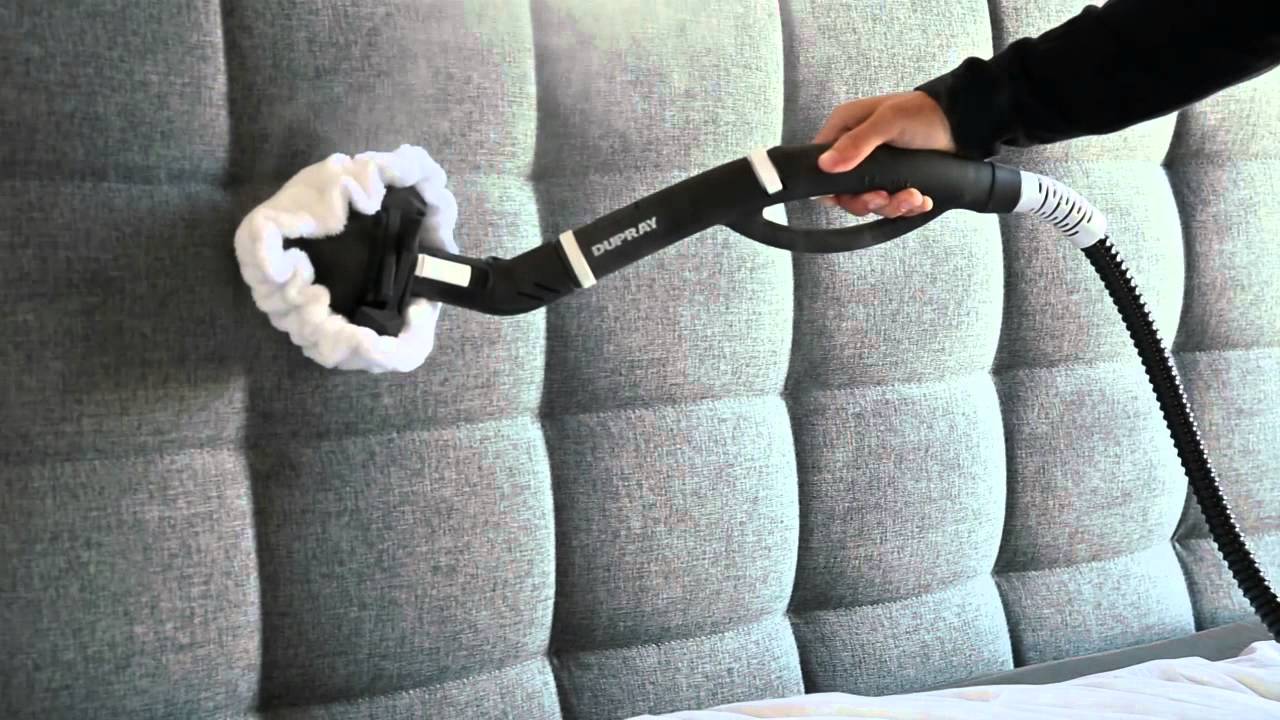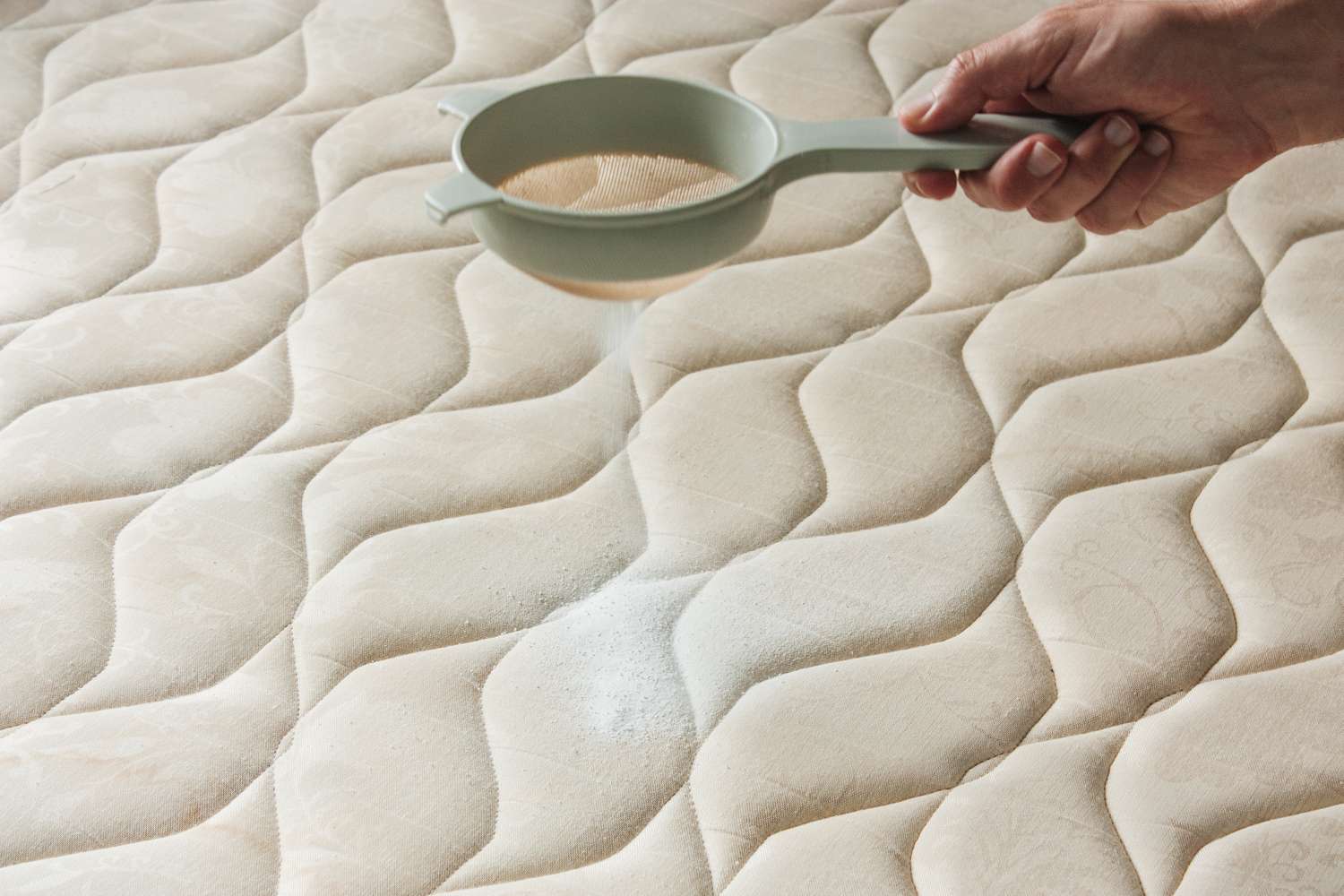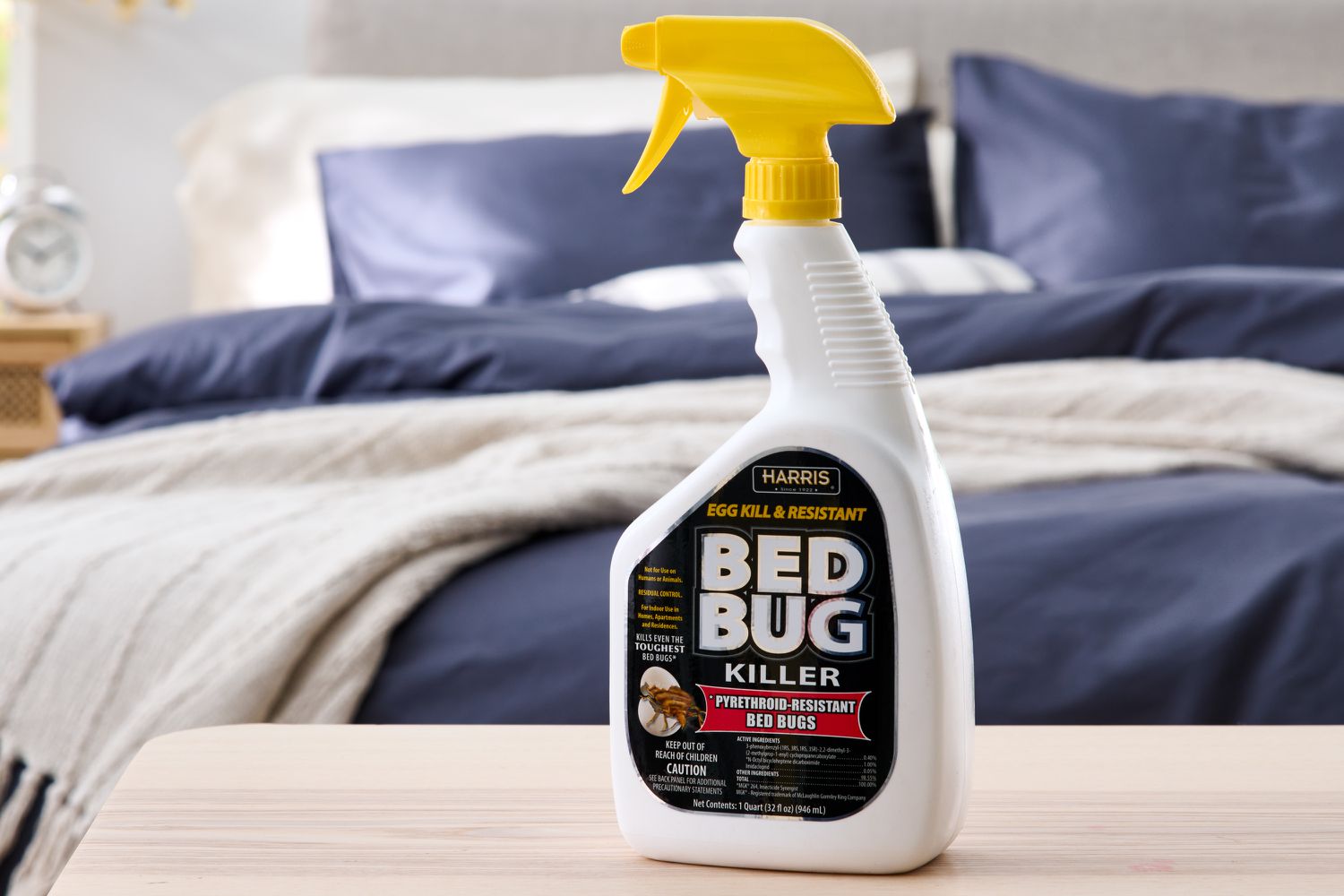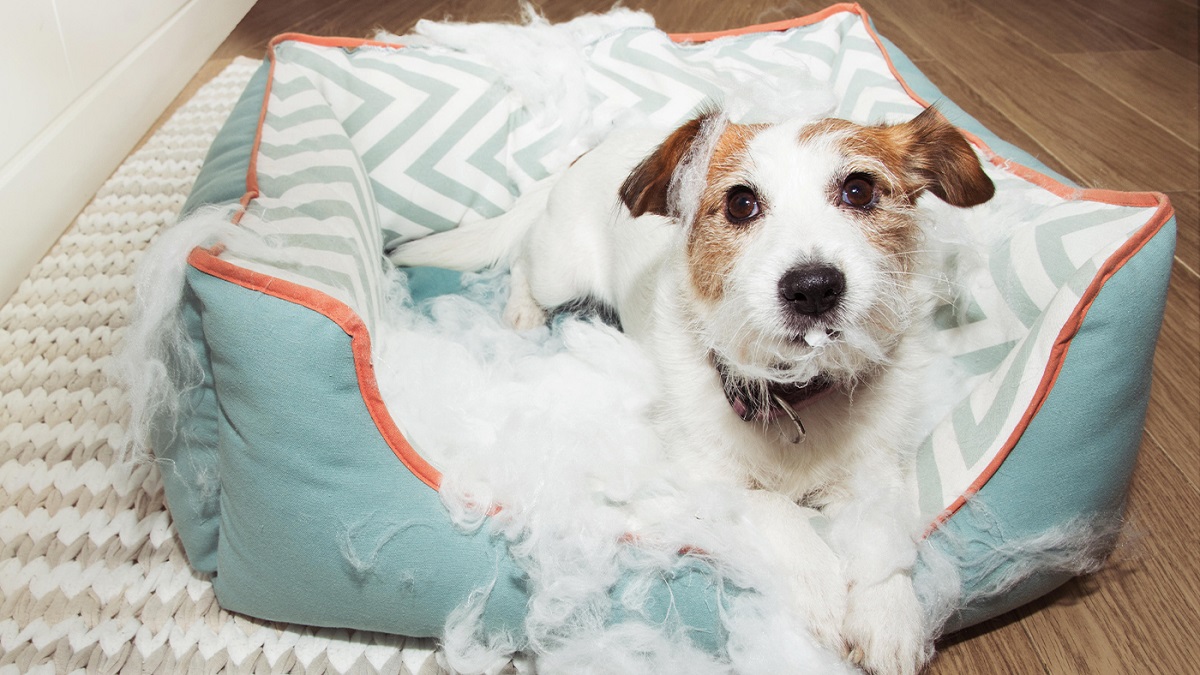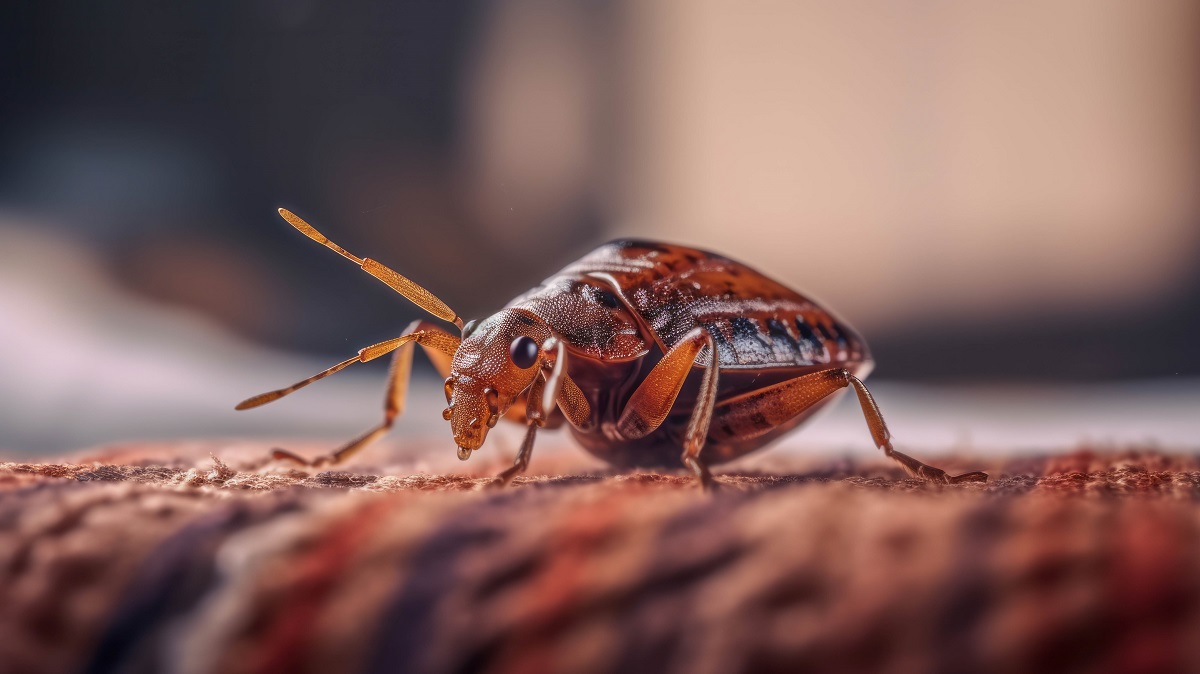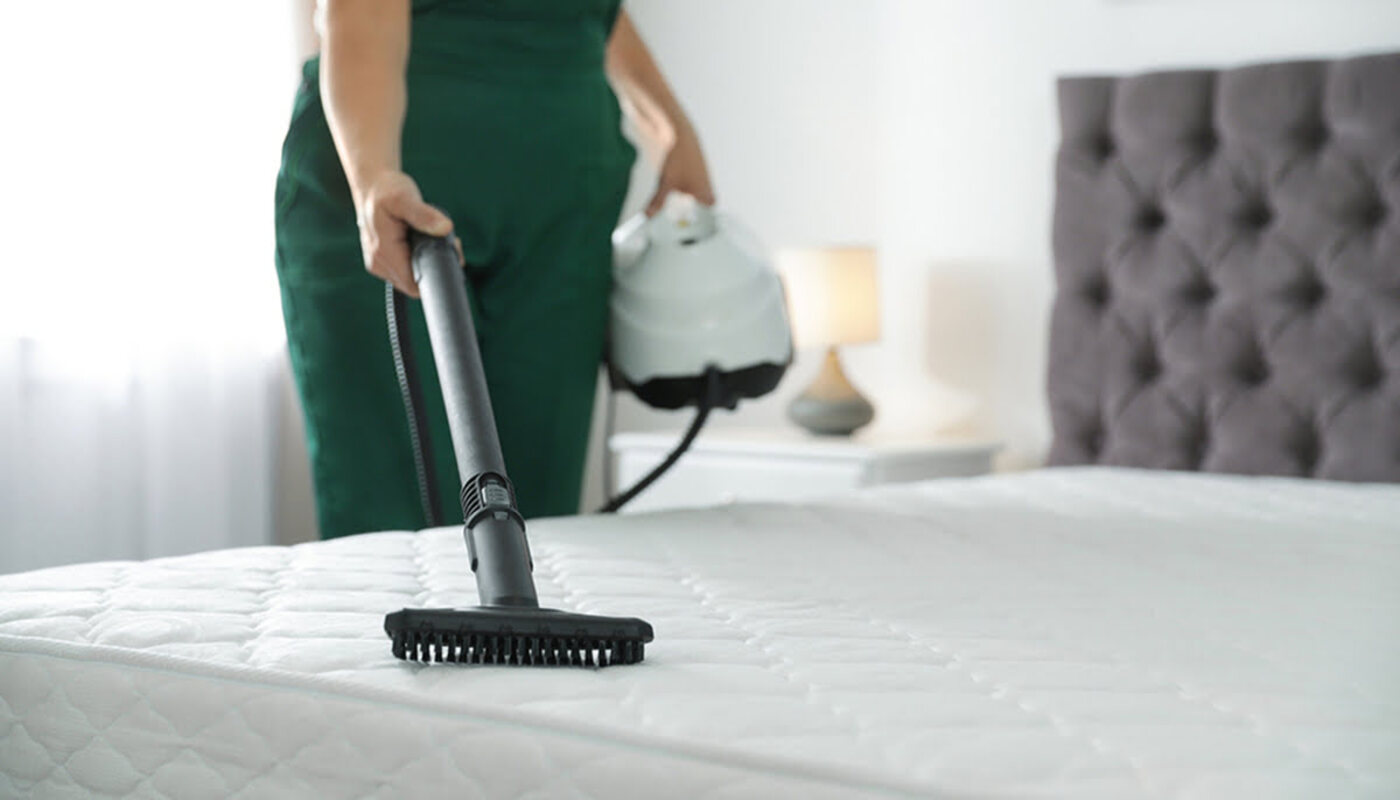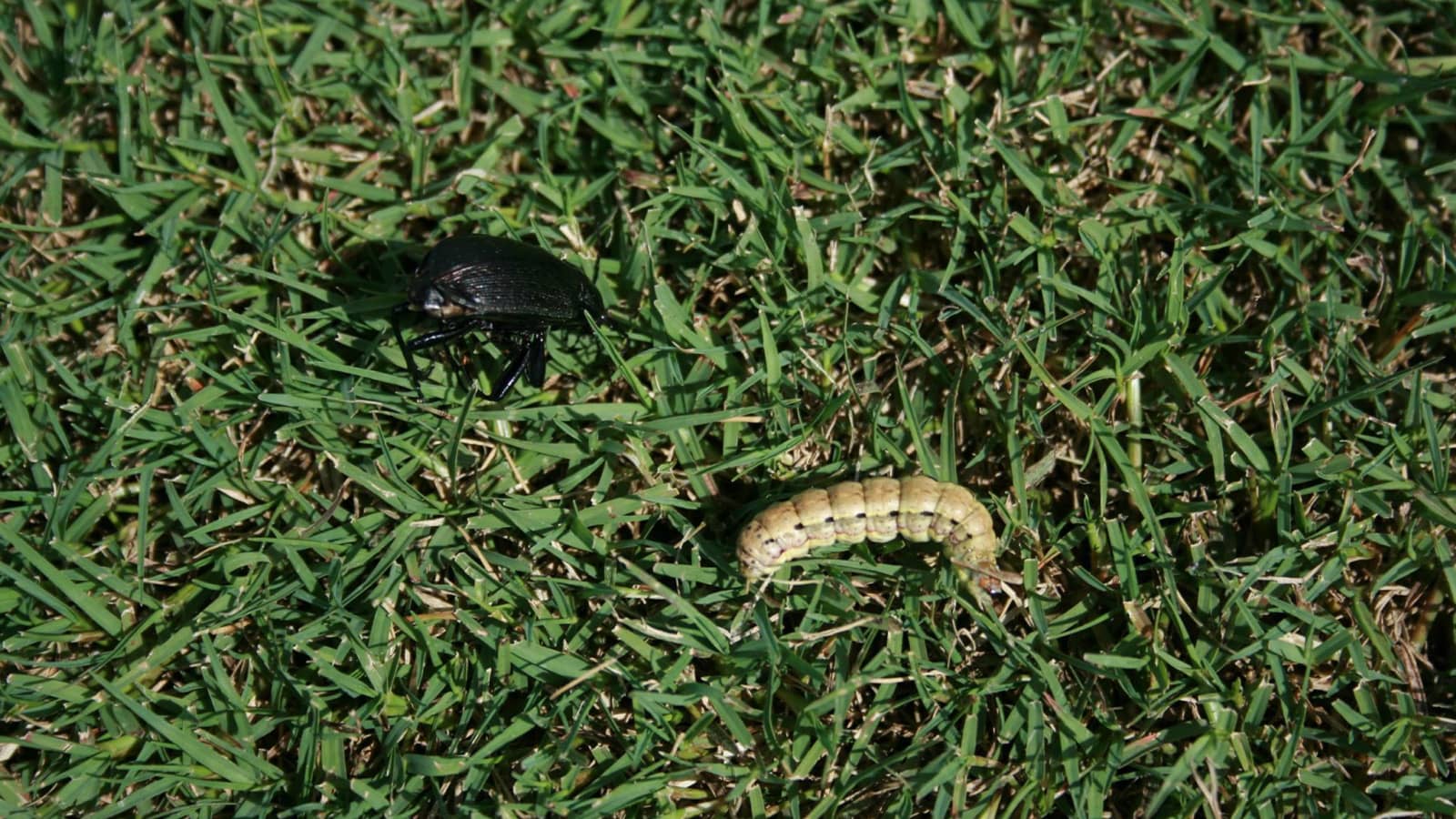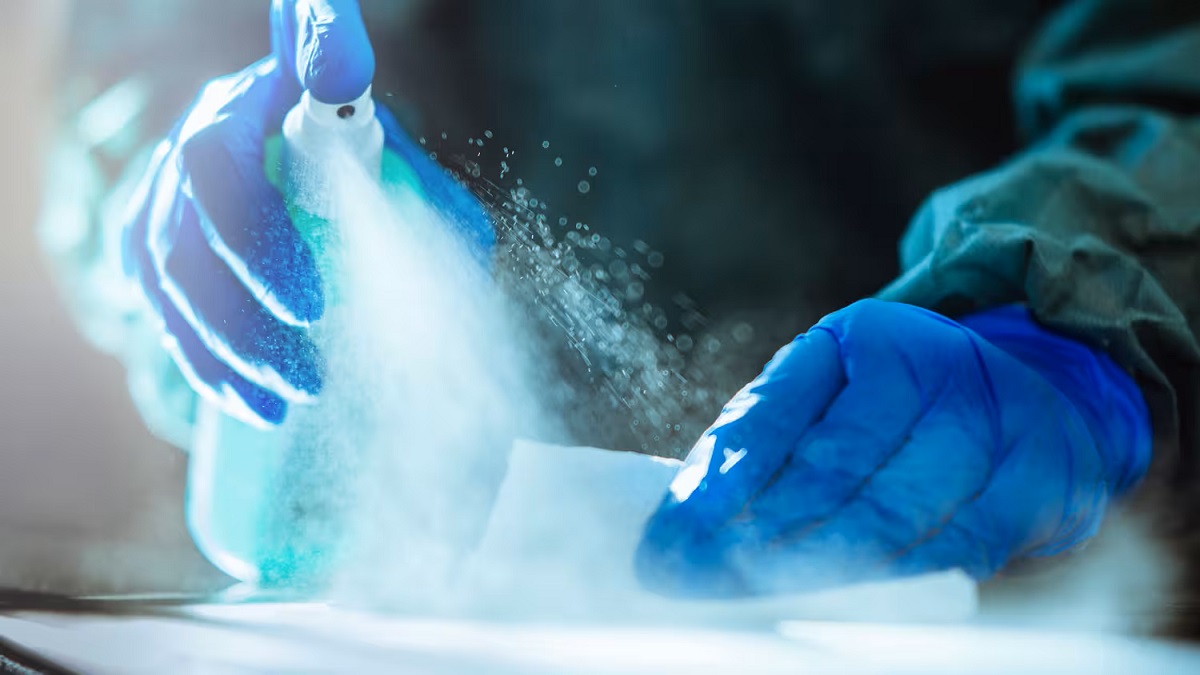Home>Furniture>Bedroom Furniture>What Can I Spray On My Mattress To Kill Bed Bugs
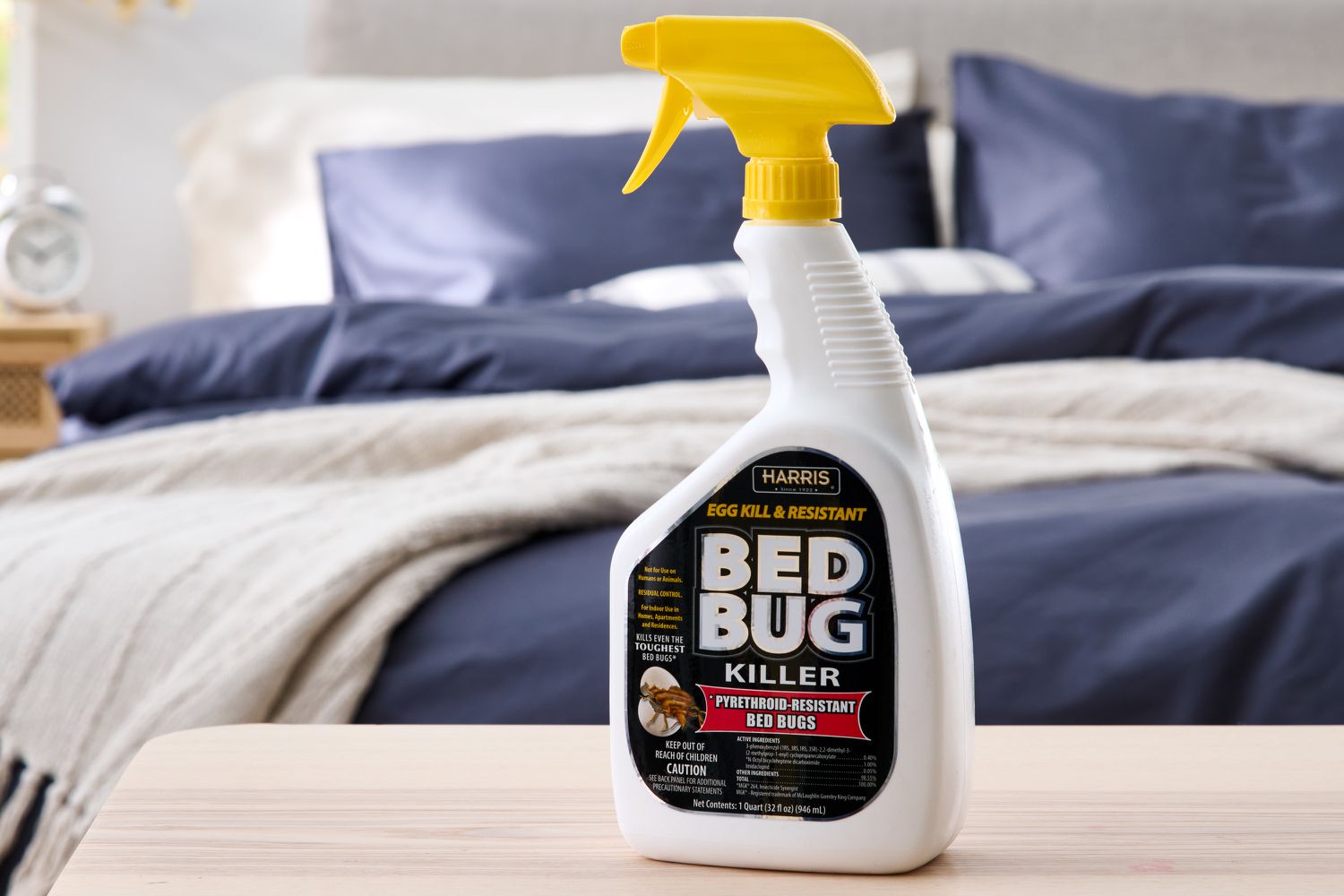

Bedroom Furniture
What Can I Spray On My Mattress To Kill Bed Bugs
Modified: October 28, 2024
Looking for a solution to kill bed bugs in your bedroom furniture? Learn what spray you can use on your mattress to eliminate these pests and sleep peacefully.
(Many of the links in this article redirect to a specific reviewed product. Your purchase of these products through affiliate links helps to generate commission for Storables.com, at no extra cost. Learn more)
Introduction
Welcome to our comprehensive guide on how to effectively deal with bed bugs on your mattress. Bed bugs can be a major nuisance, causing discomfort and potential health risks. The thought of these tiny pests lurking in your bedroom can be unsettling, but rest assured, we have all the information you need to tackle this issue head-on.
In this article, we will walk you through the process of identifying a bed bug infestation, explain the potential dangers they pose, and provide you with both DIY and professional treatment options to eliminate them from your mattress. We’ll also discuss precautions and safety measures when using sprays on your mattress to ensure that you handle the situation safely and effectively.
So let’s get started and learn how to protect your bedroom from these unwanted invaders!
Key Takeaways:
- Don’t let bed bugs ruin your sleep! Learn how to identify, treat, and prevent bed bug infestations on your mattress using DIY sprays and professional treatments for a peaceful, bug-free bedroom.
- Take control of bed bug infestations with DIY sprays and professional treatments. Prioritize safety, early detection, and swift action to effectively eliminate bed bugs from your mattress and regain a peaceful sleep environment.
Read more: How To Kill Bed Bugs On A Mattress
Understanding Bed Bugs and Their Dangers
Bed bugs, scientifically known as Cimex lectularius, are small nocturnal insects that feed on human blood. These parasitic pests are reddish-brown in color, oval-shaped, and measure about the size of an apple seed. Despite their name, bed bugs can infest more than just beds – they can be found in upholstered furniture, clothing, and even behind baseboards.
Bed bugs are not known to transmit diseases, but their presence can have a significant impact on your physical and mental well-being. Their bites often result in red, itchy welts that can cause discomfort and disturb your sleep. The persistent itching can lead to secondary skin infections if not properly treated.
Besides the physical discomfort, bed bug infestations can also take a toll on your mental health. The stress and anxiety of dealing with a bed bug problem can affect your quality of life and disrupt your peace of mind. That is why it is essential to address bed bug infestations promptly and effectively.
It is worth noting that bed bugs are excellent hitchhikers. They can easily latch onto clothing, luggage, or other items, making it easy for them to spread and infest new areas. Whether you’ve encountered bed bugs while traveling or unknowingly brought them into your home through second-hand furniture, it’s crucial to take prompt action to prevent their further spread.
Now that we have explored the basics of bed bugs and the potential dangers they pose, let’s move on to identifying the signs of a bed bug infestation in your home.
Signs of Bed Bug Infestation
Knowing how to identify the signs of a bed bug infestation is crucial in order to take appropriate action. Here are some common indicators that you may have a bed bug problem:
- Bites on Your Skin: Waking up with unexplained itchy, red welts on your skin is a strong indication of bed bug bites. These bites often appear in a line or cluster and are commonly found on exposed areas such as arms, legs, and the neck.
- Blood Stains on Your Sheets: Bed bugs feed on blood, and as a result, they often leave behind small blood stains or smears on your mattress and sheets. These stains may be visible as small reddish-brown spots.
- Dark Stains or Smears: Alongside blood stains, you may also notice dark stains or smears on your bedding caused by bed bug excrement.
- Musty Odor: Bed bugs release pheromones that give off a distinct musty smell. If you notice an unusual odor in your bedroom, particularly around your mattress, it could be a sign of a bed bug infestation.
- Visible Bed Bugs: In advanced infestations, it is possible to spot actual bed bugs crawling on your mattress or in the surrounding area. You may also find their molted exoskeletons or tiny white eggs.
It’s important to note that bed bug infestations can vary in size and severity. Early detection plays a crucial role in preventing further spread and making the treatment process more manageable. If you suspect a bed bug infestation based on any of these signs, it’s essential to act promptly.
Now that you’re familiar with the signs of a bed bug infestation, let’s move on to the importance of treating bed bugs on your mattress.
Importance of Treating Bed Bugs on Mattresses
When it comes to bed bug infestations, one of the primary areas of concern is your mattress. Mattresses provide the ideal hiding and breeding grounds for these pests due to the close proximity to their food source – you. Ignoring a bed bug infestation on your mattress can have several negative consequences:
- Increased Infestation: Bed bugs multiply rapidly, and a female can lay hundreds of eggs in her lifetime. If left untreated, the infestation on your mattress will continue to grow, with bed bugs spreading to other areas of your home.
- Disrupted Sleep and Physical Discomfort: Bed bugs are nocturnal, meaning they are most active at night when you’re trying to sleep. Their bites can cause itching, discomfort, and allergic reactions, resulting in restless nights and potential sleep deprivation.
- Health Risks: While bed bugs are not known to transmit diseases, their bites can lead to secondary infections if scratched excessively. Moreover, prolonged exposure to bed bugs and their feces can trigger allergic reactions in some individuals.
- Psychological Impact: Dealing with a bed bug infestation can take a toll on your mental health. The mere thought of sharing your sleeping space with these critters can cause stress, anxiety, and a decreased sense of well-being.
- Financial Loss: If the infestation spreads beyond your mattress, the cost of eliminating the bed bugs from your entire home can become significant. Professional treatments and replacement of infested furniture can strain your budget.
Given these potential consequences, it is essential to take immediate action to treat bed bugs on your mattress. Combining DIY methods with professional treatment options can help effectively eliminate bed bugs and prevent their reinfestation.
In the next sections, we will discuss DIY sprays that can be used to kill bed bugs on mattresses, as well as professional treatment options that may be necessary for more severe infestations.
Vacuum your mattress thoroughly to remove any bed bugs and their eggs. Then, use a bed bug spray specifically designed for mattresses, following the instructions carefully.
DIY Sprays for Killing Bed Bugs on Mattresses
If you have detected a bed bug infestation on your mattress, you may consider using DIY sprays as an initial line of defense. These sprays can help kill bed bugs on contact and disrupt their life cycle. Here are a few effective DIY sprays that you can try:
- Alcohol Spray: Fill a spray bottle with rubbing alcohol and directly spray it onto the surfaces of your mattress where you suspect bed bugs may be hiding. Alcohol has a dehydrating effect on bed bugs and can effectively kill them on contact.
- Vinegar Spray: Mix equal parts of white vinegar and water in a spray bottle. Spray the solution directly onto your mattress, paying close attention to seams, crevices, and other hiding spots. Vinegar is known for its acidic properties, which can help eliminate bed bugs.
- Eucalyptus Oil Spray: Add a few drops of eucalyptus oil to water in a spray bottle and shake well. Spray this mixture on your mattress to repel bed bugs. Eucalyptus oil has a strong scent that acts as a natural deterrent for these pests.
- Essential Oil Spray: Certain essential oils, such as lavender, tea tree, and peppermint, have insecticidal properties. Dilute a few drops of your preferred essential oil in water and spray it on your mattress. This can help kill bed bugs and their eggs.
- Diatomaceous Earth Powder: While not a spray, diatomaceous earth is a natural and effective remedy for bed bugs. Sprinkle a thin layer of diatomaceous earth powder on your mattress and leave it for a few days. The microscopic diatoms in the powder will damage the bed bugs’ outer layer, leading to their demise.
When using DIY sprays, it is important to remember that they may not completely eliminate an extensive bed bug infestation. These sprays are best suited for early-stage infestations or as part of a comprehensive treatment plan. Additionally, always follow the instructions on the product labels and exercise caution when using any DIY spray.
However, if you have a severe or persistent bed bug problem, it is advisable to seek professional assistance to ensure thorough eradication of the infestation.
In the next section, we will discuss professional treatment options for eliminating bed bugs, particularly on mattresses.
Read more: What Temperature Kills Bed Bugs
Professional Treatment Options for Eliminating Bed Bugs
While DIY sprays can be effective for smaller infestations, professional treatment options are often necessary for larger or more persistent bed bug problems. Pest control professionals have the knowledge, experience, and specialized equipment to eradicate bed bugs effectively. Here are some common professional treatment options for eliminating bed bugs:
- Heat Treatment: Heat treatment involves raising the temperature of the infested area to a level that is lethal to bed bugs. Specialized heaters and fans are used to evenly distribute hot air throughout the space, including the mattress. This method is effective in killing bed bugs, including their eggs, and is environmentally friendly.
- Insecticide Treatment: Pest control professionals may use insecticides, such as pyrethroids or neonicotinoids, to treat the infested mattress. These treatments may be in the form of liquid sprays, dusts, or aerosols. It is important to follow the instructions provided by the professionals and allow sufficient drying time before using the mattress again.
- Steam Treatment: Steam treatment involves using high-temperature steam to kill bed bugs and their eggs. The steam is applied directly to the mattress, focusing on seams, tufts, and other potential hiding spots. This method is chemical-free and can be effective in eliminating bed bugs.
- Vacuuming: Pest control professionals may use high-powered vacuums equipped with filters to physically remove bed bugs and their eggs from the mattress. Vacuuming is often combined with other treatment methods to ensure thorough removal.
- Encasement: Professionals may recommend encasing your mattress in a specialized bed bug-proof mattress encasement. These encasements are designed to trap bed bugs inside and prevent them from feeding or escaping. Encasements can be a useful preventive measure after treatment.
It is vital to consult with a reputable pest control company to determine the most suitable treatment option for your specific situation. They will assess the extent of the infestation and customize a treatment plan tailored to your needs.
Remember, professional treatments may require multiple visits and follow-up inspections to ensure complete elimination of the bed bugs. It is crucial to follow the advice and instructions given by the professionals throughout the process to maximize the effectiveness of the treatment.
Now that we have discussed professional treatment options, let’s move on to some precautions and safety measures to consider when using sprays on mattresses.
Precautions and Safety Measures When Using Sprays on Mattresses
When using sprays, whether DIY or professional-grade, to treat bed bugs on mattresses, it is important to prioritize safety to protect yourself and others in your household. Here are some precautions and safety measures to keep in mind:
- Read and Follow Instructions: Always read the instructions provided with the spray product and follow them carefully. Each product may have specific guidelines regarding application, safety precautions, and reapplication intervals. Adhering to these instructions will ensure the best results and minimize any potential risks.
- Protective Gear: Wear appropriate protective gear, such as disposable gloves and a mask, when applying sprays. This will prevent direct contact with the spray and minimize inhalation of fumes.
- Ventilation: Ensure proper ventilation in the room when using sprays. Open windows and use fans to improve airflow and reduce the concentration of fumes. This will help prevent any potential respiratory irritation.
- Keep Children and Pets Away: Keep children and pets out of the room during and immediately after spray application. Consider temporarily relocating them to a safe area until the spray has dried and any residual fumes have dissipated.
- Cover Exposed Skin: If applying the spray yourself, wear long sleeves, pants, and closed-toe shoes to minimize skin exposure. This will provide an extra layer of protection against any accidental contact with the spray.
- Avoid Direct Contact with Treated Surfaces: After applying the spray, avoid direct contact with the treated surfaces, including the mattress, until the spray has dried completely. This will prevent any potential skin irritation or transfer of the spray onto clothing or bedding.
- Properly Dispose of Containers: Dispose of empty spray containers in accordance with local waste disposal regulations. Do not reuse empty containers or use them for storing other substances.
- Follow Through with Treatment Plan: Whether using DIY sprays or professional treatments, it is crucial to follow through with the recommended treatment plan. This may involve multiple applications or additional steps to ensure the complete elimination of bed bugs.
By following these precautions and safety measures, you can mitigate any potential risks associated with using sprays on mattresses. If you have any concerns or questions, it is always advisable to consult with a professional pest control expert.
Now that we have covered the precautions and safety measures, let’s wrap up this guide on dealing with bed bugs on mattresses.
Conclusion
Dealing with bed bugs on your mattress can be a stressful and frustrating experience. However, armed with the right knowledge and tools, you can successfully eliminate these pesky pests and regain control of your bedroom.
In this comprehensive guide, we have covered the basics of bed bugs, including their identification and potential dangers they pose. We have also discussed the importance of treating bed bugs on mattresses to prevent further infestation and the various treatment options available to you.
From DIY sprays to professional treatments, there are effective methods for tackling bed bugs. DIY sprays can be a good initial approach for smaller infestations or as part of a comprehensive treatment plan. However, for more severe or persistent infestations, professional assistance is highly recommended to ensure thorough eradication.
Throughout the process, it is crucial to prioritize safety by following the instructions provided with sprays and taking necessary precautions such as wearing protective gear and ensuring proper ventilation. Additionally, keeping children and pets away from treated areas is essential.
Remember, the key to successfully dealing with bed bugs on your mattress is early detection and swift action. Regularly inspect your mattress and bedding for signs of infestation, and if you suspect a problem, promptly begin treatment to prevent the situation from worsening.
We hope this guide has provided you with valuable insights and practical tips for effectively treating bed bugs on your mattress. By following the information shared here, you can take control of your bedroom and enjoy a peaceful, bed bug-free sleep environment.
Good luck, and may you sleep soundly, free from bed bug worries!
If you're fed up with pesky bed bugs, you might be battling other unwanted guests too. For those dealing with critters in the kitchen, find out effective methods from pest control experts to keep your pantry moth-free. And if you're curious about the latest advancements in pest eradication, check out our roundup of the best bed bug sprays for the upcoming year, ensuring your home remains a sanctuary.
Frequently Asked Questions about What Can I Spray On My Mattress To Kill Bed Bugs
Was this page helpful?
At Storables.com, we guarantee accurate and reliable information. Our content, validated by Expert Board Contributors, is crafted following stringent Editorial Policies. We're committed to providing you with well-researched, expert-backed insights for all your informational needs.
